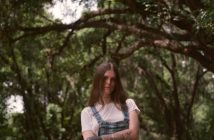Although it would be hard to choose one favourite Beatles album, Revolver was most definitely one of the best and most revolutionary records of their career. Released in the summer of 1966, The Beatles’ seventh album Revolver broke all the former rules of popular music, and marked a new phase and sound in the band’s career. Revolver explored a variety of genres, from guitar rock to orchestral and psychedelia, which compares remarkably from their previous record Rubber Soul, where they opted for a more folk-driven sound. This transition resembled a maturation of not just the band as a whole, but each member individually.
Revolver’s opening track ‘Taxman’ was one of the first songs included on an album that was written by George Harrison, and one of three on Revolver. Harrison was fascinated by Indian music, and introduced it to the rest of the band where its influences are heard on tracks such as ‘Love You To’. Revolver no doubt displays some of Paul McCartney’s best songwriting too, especially on orchestral song ‘Eleanor Rigby’ which shows his versatility and maturation from The Beatles’ previous work. As McCartney and Harrison both experimented with new sounds, John Lennon experimented with the drug LSD which inspired closing track ‘Tomorrow Never Knows’. The song used groundbreaking new guitar and production techniques to create a psychedelic sound, as Lennon wanted to recreate the experience of an LSD trip. Not forgetting Ringo Starr, who also contributed lead vocals to one of the more surreal and bizarre Beatles songs, ‘Yellow Submarine’.
Although individually The Beatles had many different inspirations and experimentations, the fact that they collectively put these ideas on one single album makes this one of their best releases. Revolver shows the high calibre of talent all four members had, and the maturation of the band paved the way for one of their most critically acclaimed albums, Sgt. Pepper, and showed there were no limits and boundaries to The Beatles’ music.



